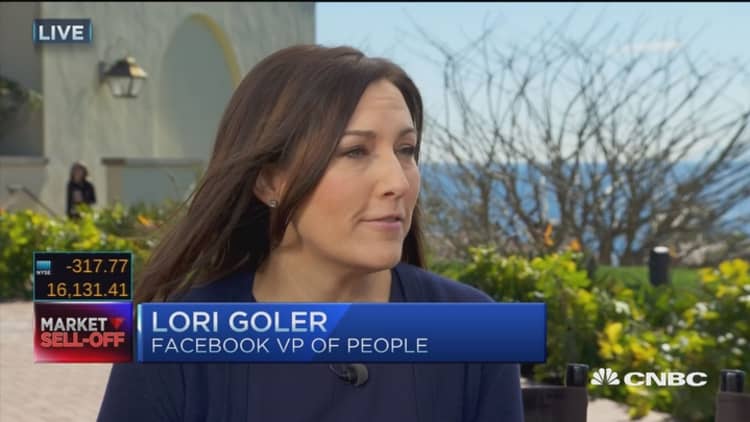
"We know from study after study that more diverse teams perform better," Sheryl Sandberg, Facebook's chief operating officer, told CNBC on Monday.
The company, which released its diversity data for the first time in 2014, is set to present its anti-bias model at the MAKERS conference on Monday.
In efforts to create a culture of inclusion, the company has designed a bias management training. The exercises aim to tackle unconscious bias in the workplace. While it has not been a silver bullet, Lori Goler, the company's vice president of people, told CNBC that Facebook's intention of surfacing bias has been successful.
"When people who are in the non-majority are interrupted in meetings, which happens more frequently if you're in the non-majority group, people are actually interrupting the interrupters," Goler said. "It's really changed the vocabulary."
Sandberg, author of "Lean In," a self-improvement book that encourages female empowerment in the workforce, acknowledged that race and gender biases do exist in the workplace. She recounted a study where white-sounding names on resumes got more attention than black-sounding names.
However, since its initial diversity release, Facebook's numbers have barely budged.
In 2014's diversity report, women at Facebook comprised a 31 percent, which only went up one percentage point in 2015. The company had a white majority of 57 percent in 2014, which decreased by two percentage points in 2015. The Hispanic, black and two-or-more-races categories saw no improvement, and together form 9 percent of Facebook employees. Asians still make up the second majority with a 36 percent, a two percentage-point increase from the last year.
"It's been really hard for us to move the numbers, and the same is true for all the company in our industry," Goler said on Monday.
She told CNBC one of the company's challenges is the "pipeline." Goler claims that in the last 31 years the numbers of women with degrees in computer science has declined to 18 percent from about 35 percent.






